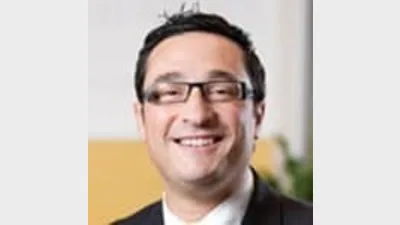ASIC recruits from within financial planning industry



{^youtubevideo|(width)620|(height)385|(border)False|(rel)True|(autoplay)False|(fs)True|(color2)#EFEFEF|(cookies)False|(url)http://www.youtube.com/watch?v=MYge6y2xcac&showinfo=0|(loop)False|(colo…^}
The Australian Securities and Investments Commission (ASIC) has confirmed it has increased its efforts to better understand the inner workings of the financial planning industry by recruiting from within the sector.
Money Management understands former employees of small practices and institutions such as AMP have been poached by the regulator in recent months.
“While I don’t have exact figures to provide, I can say that ASIC’s financial advisers team has a strong diverse skill set,” said Danielle McInerney, a spokesperson for ASIC.
“It has people with many years of industry experience such as lawyers, financial planners, risk and compliance managers.”
This apparent move by ASIC was welcomed by the financial planning industry.
“A combination of having people with experience inside the team and engaging more with the industry can only help them better regulate the industry,” said Dante De Gori, the Financial Planning Association's (FPA’s) general manager for policy and government.
“There is a lot more that could be done – resourcing is a constant, ongoing battle – but this is a good start and a good step,” he added.
The change in the regulator’s approach is also reflected in the availability and willingness of ASIC’s senior representatives to speak at events and attend roadshows, according to the Association of Financial Advisers (AFA) chief executive officer Richard Klipin.
“The shift to recruit people from within the industry with strong experience is to be applauded,” Klipin said.
“We were always of the view that the regulator has a strong and key role to play and the closer the industry and the regulator are in terms of the focus, strategy and activity, the better the outcome for the industry – but most importantly for the consumer.”
Both De Gori and Klipin have also noted increased efforts by the regulator to consult with the industry, the most recent example being the financial planning shadow shop exercise conducted by ASIC.
Apart from engaging ASIC’s Consumer Advisory Panel, which was established in 1999, the regulator also employed a so-called ‘expert reference group’ for oversight, members of which came from advice groups and superannuation funds initially nominated by the FPA, the AFA and the Association of Superannuation Funds of Australia.
“The group assisted in defining the quality of advice benchmarks and provided guidance on the grading of the advice, including calibration with industry standards,” ASIC stated in its full report on the shadow shop.
De Gori said these types of advisory panels were not a new concept, but definitely represent an increased effort on behalf of not just ASIC but other bodies such as the Financial Ombudsman Service.
“You don’t have to necessarily employ industry participants, but you can utilise them externally from time-to-time, depending on what the area of expertise is,” he added.
Klipin agreed, saying such initiatives help “build a strong link between the industry and the regulator.”
Recommended for you
ASIC has released the results of the latest financial adviser exam, held in November 2025.
Winners have been announced for this year's ifa Excellence Awards, hosted by Money Management's sister brand ifa.
Adviser exits have reported their biggest loss since June this week, according to Padua Wealth Data, kicking off what is set to be a difficult December for the industry.
Financial advisers often find themselves taking on the dual role of adviser and business owner but a managing director has suggested this leads only to subpar outcomes.











